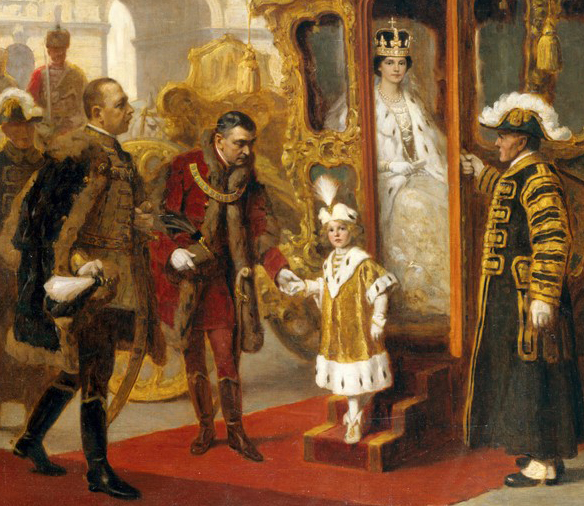Mourning the Death of Otto von Habsburg
A true aristocrat's vision of a united Europe dies in Germany.
 One of the great men of Europe has passed away. The death of Otto von Habsburg, the last scion of the Austrian monarchy, at 98 is cause for mourning. Felix Austria, happy Austria, is the motto of his country, but its history in the twentieth century did not always exemplify this credo. No one did more to try and uphold the truly noble qualities of his forebears, however, than Otto von Habsburg.
One of the great men of Europe has passed away. The death of Otto von Habsburg, the last scion of the Austrian monarchy, at 98 is cause for mourning. Felix Austria, happy Austria, is the motto of his country, but its history in the twentieth century did not always exemplify this credo. No one did more to try and uphold the truly noble qualities of his forebears, however, than Otto von Habsburg.
Habsburg was a true European aristocrat, someone who battled all his life for the vision of a united Europe. When the iron curtain disappeared in 1989, Habsburg strove to include the former Soviet satellite countries into the European Union. Perhaps it was a form of recompense for the demise of the Habsburg empire. Otto knew these countries and their languages intimately.
The Habsburg empire was itself of course a multinational one. It formed its own kind of mini-European Union, one forged together by force and marriages. To Austria's lot it had fallen to repel the Turkish invaders in 1683. Had they not succeeded, Londoners might, as Gibbon once observed, be reading the Koran and attending mosques. Austria served as a barrier against Russian expanionist aims as well. But Sarajevo and World War I brought an end to all that. As Joseph Roth's novel Radetzky March suggests, the Austrian empire really was a rather ramshackle affair that was rotting away. But it also embodied a kind of reciprocal obligation between ruler and ruled, a cozy and idyllic existence that was upended by war. The Austrian monarchy crumbled. So did the WIlhelmine one and the Romanov dynasty. New, more sinister forces took power. In Russia the Bolsheviks implemented their mad dream to remake humanity. And Austria exported Hitler to Bavaria, where he welded the fissiparous forces of the right into a potent force. Far better that Europe's monarchies would peacefully have been converted into constitutional ones. It was not to be.
Otto von Habsburg tried to combat these malignant forces. Unlike many of Germany's aristocrats, he found Hitler repugnant. He rejected his overtures. As the Telegraph reports,
The climax was reached in February and March of 1938 when a Nazi takeover in Vienna seemed imminent, prompting a short-lived show of defiance from the Austrian Chancellor Kurt Schuschnigg — a monarchist at heart but without the strength of his convictions. His vacillation prompted a remarkably courageous offer from the young Pretender to return from exile to take over the reins of government in order to repel Hitler. Schuschnigg dithered but eventually rejected the idea — perhaps just as well for Otto, who was already high on the Gestapo’s wanted list.
Otto himself may have harbored illusions about the depth of support for Hitler. Vienna's Heldenplatz was pullulating with ecstatic Viennese once the Fuhrer motored into the city with his troops in March 1938. Habsburg believed that Hitler had been foisted on the Austrians. The truth was otherwise. Unfortunately, his brethren did not share his contempt for Hitler. Quite the contrary. Austria spent decades trying to airbrush its records, but its sorry history has been ruthlessly exposed.
For many years, until he abjured his claim to the throne, Habsburg was not allowed to visit the country he loved so dearly. In 1979, Habsburg, who was living in Bavaria, entered the European parliament, where he served for several decades. Fluent in numerous languages, he often addressed it in Latin. Habsburg was a throwback. He was a true conservative, a representative of the most gallant values of the aristocracy and his religious faith. Requiem aeternam donaei, Domine, et lux perpetua luceat ei.
